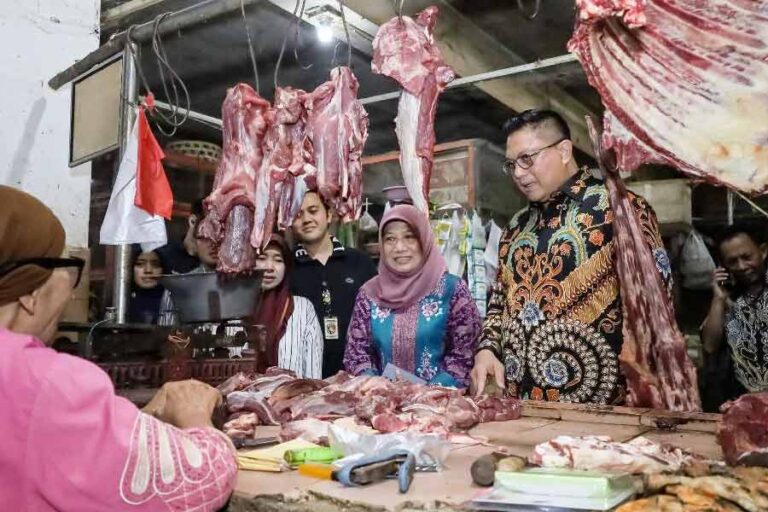As Eid al-Fitr 2025 approaches, Indonesia is witnessing a notable surge in food prices, a trend that has significant implications for consumers, policymakers, and the economy at large. This article delves into the factors contributing to these price hikes, the government's response, and the potential long-term effects on the nation's food security and inflation rates.
Rising Prices of Essential Commodities
In the week leading up to Eid 2025, several staple food items have experienced price increases:
- Shallots: Prices rose from Rp26,452/kg to Rp28,227/kg.
- Curly Red Chilies: Increased from Rp30,564/kg to Rp31,625/kg.
- Large Red Chilies: Jumped from Rp30,179/kg to Rp35,000/kg.
- Beef (live weight): Went up from Rp52,814/kg to Rp54,038/kg.
- Broiler Chickens (live weight): Climbed from Rp21,610/kg to Rp22,500/kg.
- Chicken Eggs: Increased from Rp24,598/kg to Rp25,207/kg.
Interestingly, rice prices have seen a slight decrease:
- Medium Rice: Decreased from Rp12,636/kg to Rp12,598/kg.
- Premium Rice: Reduced from Rp14,008/kg to Rp13,929/kg.
These fluctuations have raised concerns among consumers and policymakers alike, prompting discussions on food affordability during the festive season.
Government Initiatives to Stabilize Prices
In response to the escalating prices, the Indonesian government has implemented several measures aimed at stabilizing the market:
- Market Operations: Starting February 24, 2025, the government initiated market operations in 500 locations, with plans to expand to 4,000 locations during Ramadan. These operations aim to provide staple foods at lower prices to counteract market inflation.
- Importation of Raw Sugar: To bolster food reserves and stabilize sugar prices, Indonesia plans to import approximately 200,000 metric tons of raw sugar. This move addresses the surge in domestic white sugar prices ahead of Ramadan.
- Palm Oil Export Adjustments: Indonesia's crude and refined palm oil exports increased by 62.2% in February, reaching a four-month high of 2.06 million metric tons. This surge is attributed to a reduction in export taxes, making Indonesian palm oil more competitive globally.
Impact on Consumers and the Economy
The rise in food prices poses several challenges:
- Consumer Purchasing Power: Higher prices for essential commodities can strain household budgets, especially during festive periods when consumption typically increases.
- Inflation Rates: Persistent increases in food prices can contribute to overall inflation, affecting the broader economy.
- Food Security: Ensuring affordable access to staple foods is crucial for maintaining food security, particularly for low-income populations.
Long-Term Strategies for Price Stability
To mitigate future price volatility, several strategies can be considered:
- Enhancing Domestic Production: Investing in agricultural infrastructure and technology can boost domestic production, reducing reliance on imports and stabilizing prices.
- Diversifying Food Sources: Encouraging the consumption of alternative staples can reduce pressure on specific commodities, leading to more balanced demand and supply dynamics.
- Strengthening Supply Chains: Improving logistics and distribution networks ensures efficient delivery of goods, minimizing shortages and price spikes.
Conclusion
The surge in food prices before Eid 2025 underscores the need for proactive measures to ensure market stability and protect consumers. While the government's immediate interventions aim to alleviate current pressures, long-term strategies focusing on production enhancement, diversification, and supply chain improvements are essential for sustainable food security and economic stability.
Read More






 Friday, 27-02-26
Friday, 27-02-26







